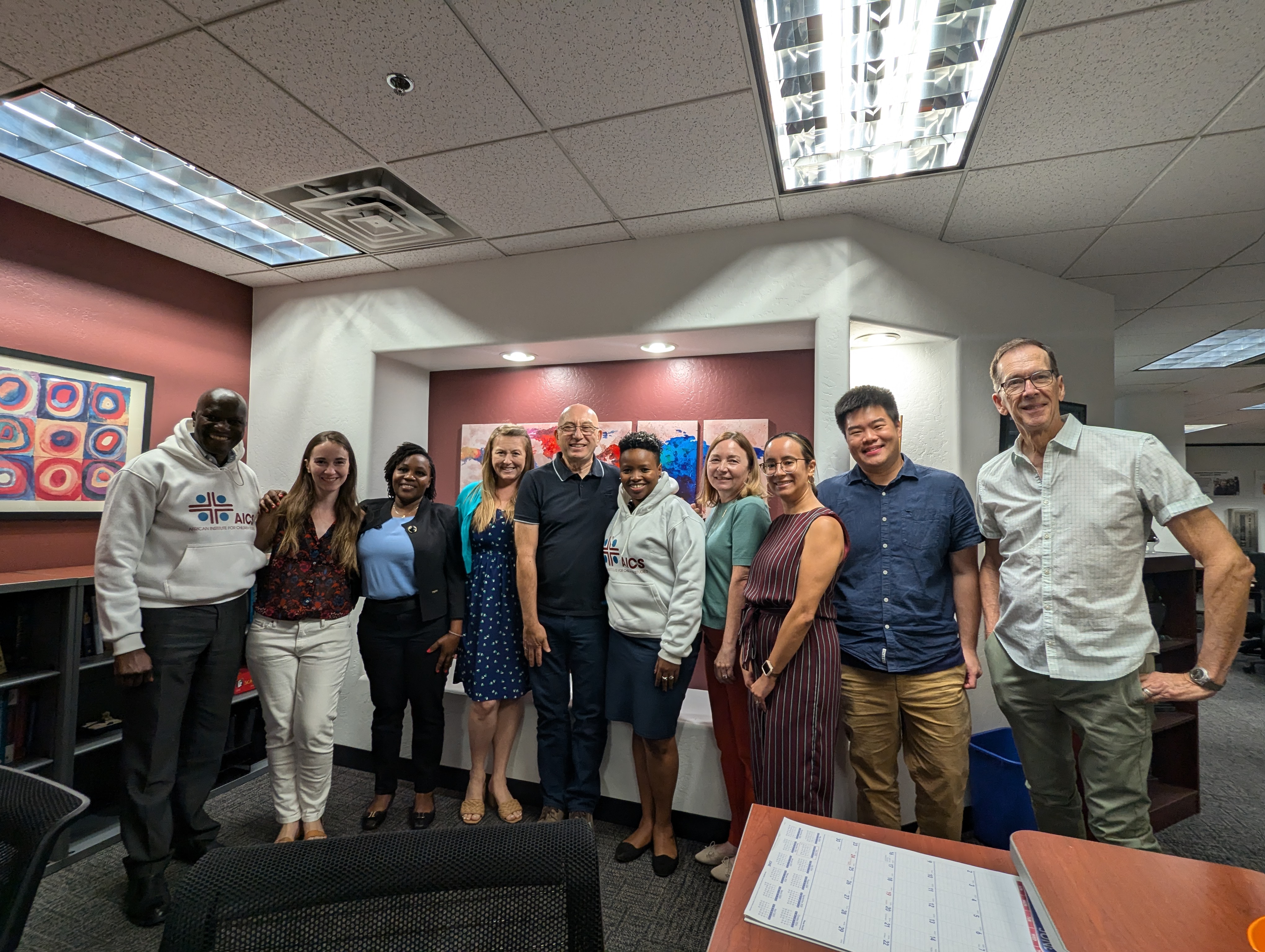
Expansion of evidence-based drug prevention program in Kenya’s schools
PHOENIX - Last month, Samuel Munyuwiny and colleagues from the African Institute for Child Studies (AICS) met with ASU’s Global Center for Applied Health Research (GCAHR) to discuss the positive effects of the Keepin’ it REAL pilot program in Kenya and expansion.
 In 2019, AICS worked with GCAHR to bring the Keepin’ It REAL program, a science-based prevention program to instill students with anti-drug attitudes and reduce substance abuse, to a select group of schools in Kenya. According to their study, the program was a success and led to students being less likely to use alcohol and engage in heavy drinking.
In 2019, AICS worked with GCAHR to bring the Keepin’ It REAL program, a science-based prevention program to instill students with anti-drug attitudes and reduce substance abuse, to a select group of schools in Kenya. According to their study, the program was a success and led to students being less likely to use alcohol and engage in heavy drinking.
The Keepin’ it REAL program was started by GCAHR’s director Flavio Marsiglia and colleagues over 20 years ago. The program was born out of a desire to combine drug prevention education with evidence-based intervention.
While working in public schools in Cleveland, Ohio, Marsiglia said: “One of my assignments as a researcher was to evaluate what they call their drug-free school programs, meaning all the prevention programs that were going on in the schools. And I became a bit concerned about the lack of evidence of those programs — the lack of science-based prevention. And I carried that here with me.”
The first pilot studies were done in 35 schools across Phoenix where Marsglia and his team of researchers interviewed children and followed up with interviews to the ones who had been offered drugs but had refused.
Their answers gave way to the strategies: Refuse, Explain, Avoid and Leave which became the name of the program, Keepin’ it REAL. In the last 20 years, the Keepin’ it REAL program has been expanded to several countries and is used by different cultures all over the world.
Early in this process, Marsiglia recalls, “It became clear that you needed to culturally adapt the program.”
“We found that with American Indian kids it was less efficacious than with other kids,” Marsiglia said. “Once we culturally adapted the program for American Indian kids, we reached the same level of efficacy.”
 As a result of this work, GCAHR received funding from ASU and provided fellowships to fellows from Sub-Saharan Africa. Through this program, Munyuwiny became inspired by the success of Keepin’ it REAL and wanted to implement it in Nairobi.
As a result of this work, GCAHR received funding from ASU and provided fellowships to fellows from Sub-Saharan Africa. Through this program, Munyuwiny became inspired by the success of Keepin’ it REAL and wanted to implement it in Nairobi.
“There would be reports of children as young as 8-years-old who would sometimes report to school drunk,” Munyuwiny said, “And so I thought I could do something about it.”
Benjamin Melita, a student who received support from AICS for his education, recalls walking across a national park with dangerous animals and no clear path to get to the nearest school. For his community, he started a primary school.
According to Melita, parents were not comfortable sending their children to school, and he saw huge amounts of children dropping out of school and ending up in forced or early marriages.
“Education was not being taken as an important factor in my community and being enlightened I saw the gap that is what made me start the school,” Melita wrote in a Whatsapp message.
Although the study in Kenya was reported to be a successful, Munyuwiny and his team are hoping to expand the program and put the work in to culturally adapt the program for Kenya students.
Montserrat Ganderats Fuentes, the program manager at GCAHR said they had submitted a proposal earlier this year to the Spencer Foundation hoping to receive funding to conduct a larger scale study in Kenya and other African countries so they can better culturally adapt the program and reach more students. They have not heard back yet, but both GCAHR and AICS are hopeful and excited to collaborate more in the future.